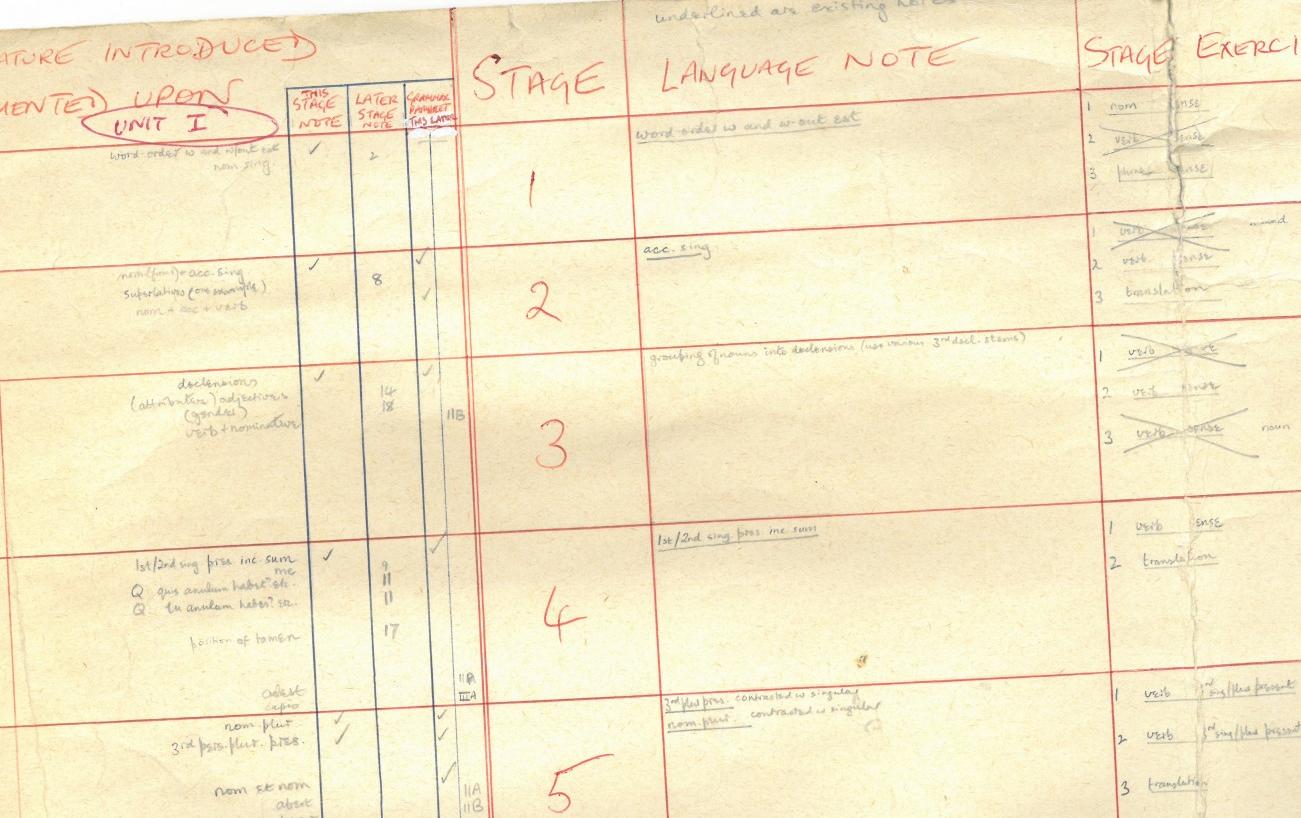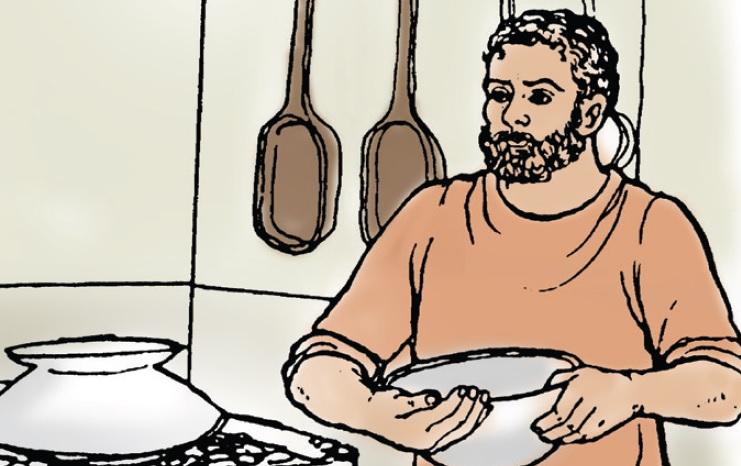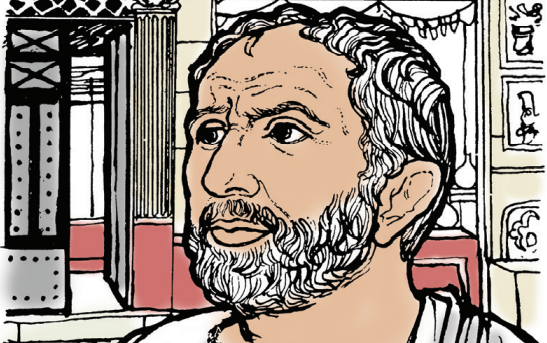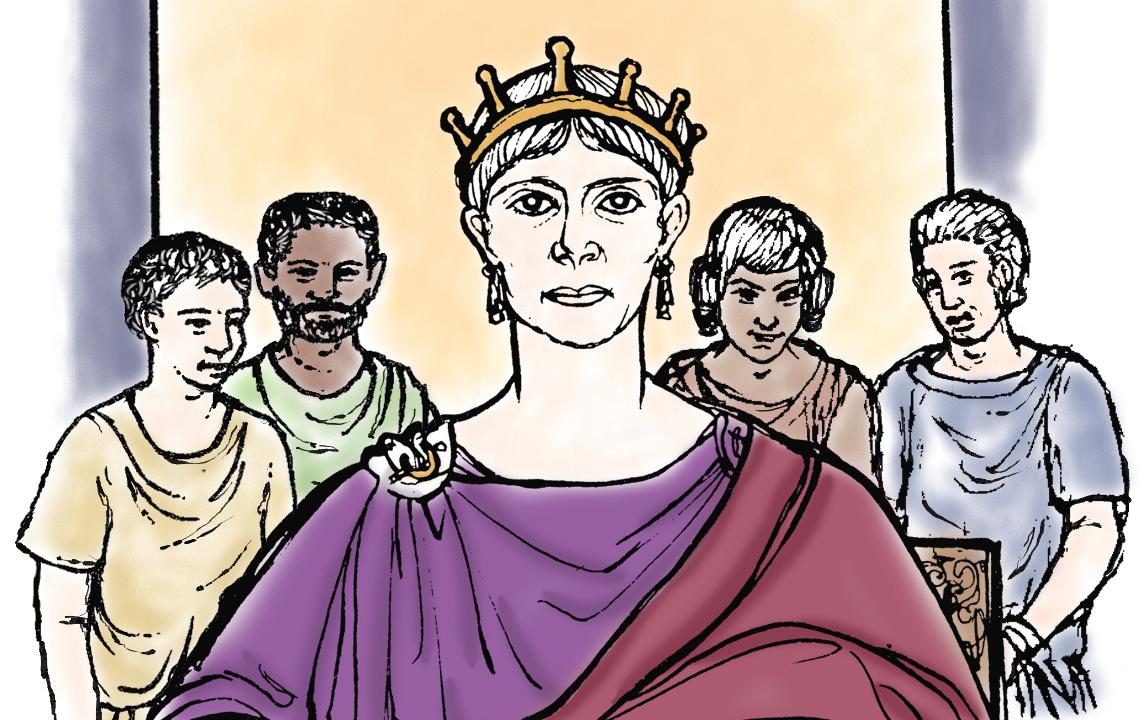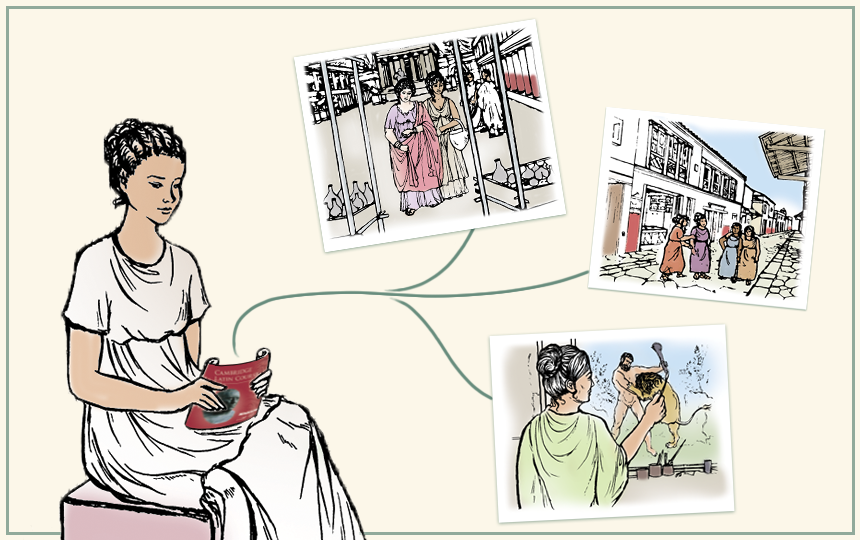Can the CLC be read as an epic? In this post, part of our CLC: Past and Present series, Anna Barker finds some Virgilian echoes in the narrative of Quintus.
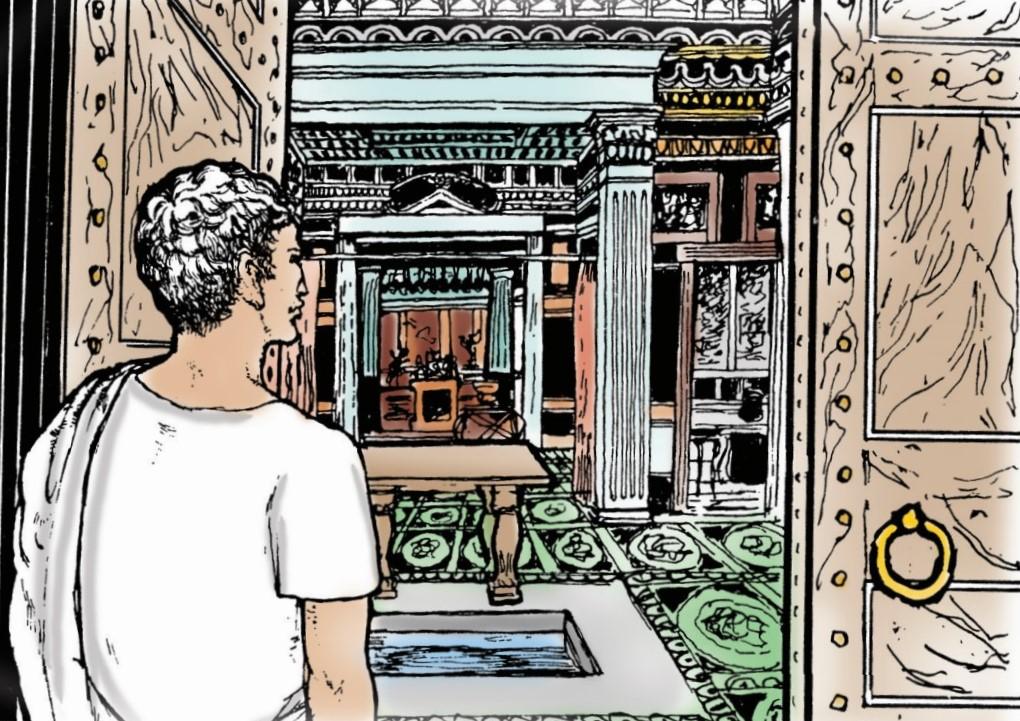
Submitted by Anonymous on Tue, 29/03/2022 - 14:00
Quintus arrives at the house of Barbillus in Alexandria in Book II of the CLC
As a trainee teacher, I once overheard someone say that the narrative of the Cambridge Latin Course was based on the Aeneid.
I can’t remember who said this, or what their authority was, or which aspects of the story they had in mind, but it was one of those moments which elicited admiration and surprise. There is something extremely satisfying when a familiar text turns out to be hiding something in plain sight. The best example of this I can think of is when, as a ten year old, I was told that Narnia was actually a Christian allegory. Now, I have strong sympathy with Philip Pullman’s views on the morality of this, but I remember at the time the excitement of seeing the story in a new light. I was impressed.
Did the authors of the Cambridge Latin Course, consciously or unconsciously, include echoes of the Aeneid in the series? There seem to me to be two plausible ways in which they did: in terms of the structure of the narrative, and the character of Quintus.
The most obvious echo is the flashback in the second book of the course. Quintus’ first person account to King Cogidubnus of how he ended up in Britain (via Athens and Alexandria) mirrors Aeneid II and III, in which Aeneas, in response to Queen Dido’s questions, narrates how he ended up in Carthage (via Greece and Sicily). It is quite a bold decision to incorporate a flashback into the narrative as, in my experience, it poses certain challenges for students reading the course. I find myself doing a lot of reinforcing that the Alexandria storyline actually happened before the Salvius/Cogidubnus storyline, and it takes some readjustment for students starting the third book at the beginning of a new school year to remember that we are still in Britain. The teacher also has to do a lot of reminding that the Alexandria story is told in the first person. The decision to build a flashback of Mediterranean wanderings into the course could perhaps be seen as a way of preparing students for the experience of following Aeneas’ story at GCSE or beyond.
In addition to structure, I would like to think that there is something of Aeneas in the character of Quintus. OK, Quintus may not be responsible for the establishment of imperium sine fine, and I think it is hard to to argue that there is some overarching teleological force to the story (although there is a mini telos of going to Britain to fulfil Barbillus’ dying wish, as well as a bigger goal of bringing about the downfall of Salvius). Instead, there is perhaps a blankness to both these characters. For the heroes of their own stories, they lack any really strong character traits – Odysseus’ wiliness, say, or Achilles’ pride – other than a vague sense of being morally upright. Instead, their stories are peopled by characters much more colourful than they are. Both are fundamentally decent but are pleasingly flawed. While Aeneas royally messes up in his handling of the departure from Carthage, Quintus has a pretty bad run of things in Alexandria, dismissing the advice of the puer Aegyptius, and scoffing at Barbillus’ respect for astrology, both with disastrous consequences. Like Aeneas, Quintus is a refugee following the destruction of his home town. And if we’re going to get really psychological about it, they are both characters who are marked by trauma (destruction of Troy, destruction of Pompeii) and loss (Anchises/Dido/Pallas, and Caecilius/Barbillus/Cogidubnus/Dumnorix – basically every ‘good’ character in the series).
So were these echoes intentional? The team at CSCP got in touch with Pat Story, one of the original authors of the series, to pose this question. The answer: completely unintentional! After some initial disappointment, I asked myself whether this really mattered. It is still fun to make connections. When I suggested the ‘Cambridge-Latin-Course-As-Aeneid’ theory to my Year 12s, they had their own Narnia moment. As classicists, we are almost programmed to see intertextuality in everything, and if we can find satisfaction by noticing pleasing aspects of a piece of writing, whether the author intended them or not is neither here nor there.
Cambridge School Classics Project


